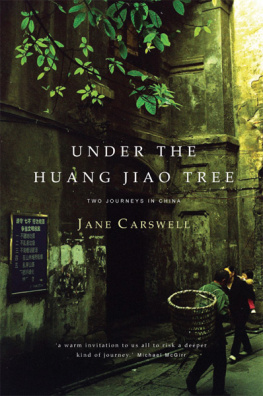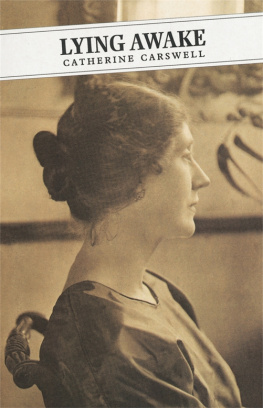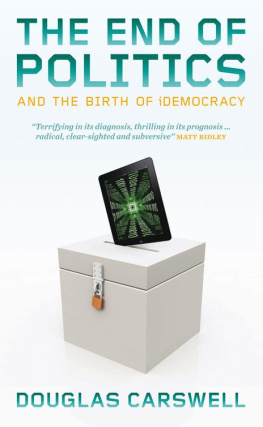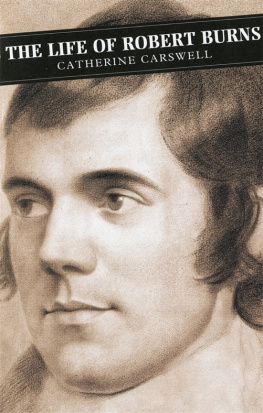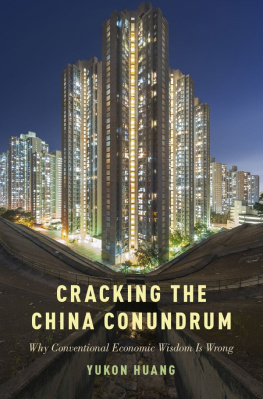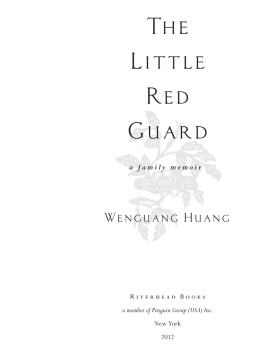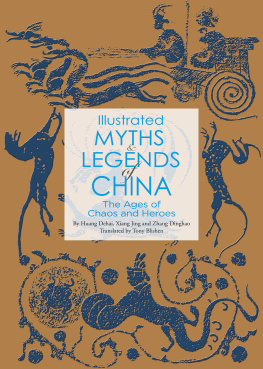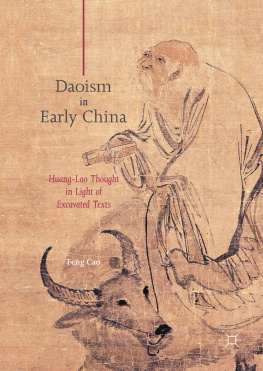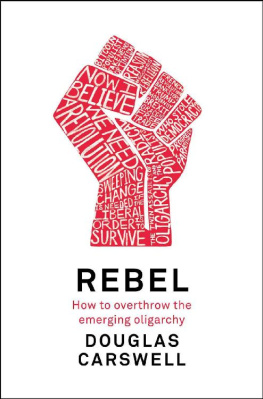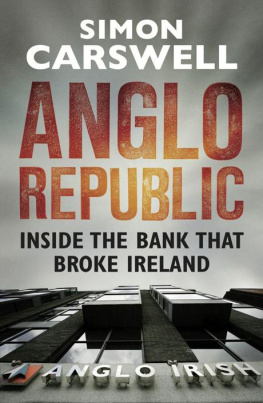UNDER THE
HUANG JIAO TREE
TWO JOURNEYS IN CHINA
UNDER THE HUANG JIAO TREE
TWO JOURNEYS IN CHINA
JANE CARSWELL
First published 2009
This e-book edition 2011
Transit Lounge Publishing
95 Stephen Street
Yarraville, Australia 3013
www.transitlounge.com.au
Copyright Jane Carswell 2009
This book is copyright. Apart from any fair dealing for the purpose of private study, research, criticism or review, as permitted under the Copyright Act, no part may be reproduced by any process without written permission. Inquiries should be made to the publisher.
Design by Peter Lo
Cover photograph by Zhang Jianyu (cqgloomsunday)
Author photograph by Andrew Clarkson www.snowsite.co.nz
Transit Lounge is a proud member of the A.P.A. (Australian Publishers Association) and S.P.U.N.C. (Small Press Underground Networking Community)
National Library of Australia
Cataloguing-in-Publication entry
Carswell, Jane.
Under the huang jiao tree : two journeys in China / Jane Carswell.
1st ed.
ISBN: 9780980846263 (e-book)
Carswell, Jane--Travel--China--Chongqing.
Teachers--Travel--China--Chongqing.
Middle schools--China--Chongqing.
Chongqing (China)--Description and travel.
915.138
Every effort has been made to obtain permission for excerpts reproduced in this publication. In cases where these efforts were unsuccessful, the copyright holders are asked to contact the publisher directly.
THERE IS A MEANING
IN EVERY JOURNEY
THAT IS UNKNOWN TO
THE TRAVELLER
Dietrich Bonhoeffer, quoted in:
The Rule of Benedict. Insights for the Ages
by Joan D Chittister OSB
I have changed the names of some of the characters in the book, to respect their privacy.
I write under my mothers maiden name, to remember her and her father, who first introduced me to good writing.
PROLOGUE:
TWO JOURNEYS
There are always two journeys, the outer and the inner.
I spent ten months in China teaching English at a Foreign Language School. The outer journey, what I saw and heard and did in that time, is easy to talk about. I dipped deep into a world that was strange, baffling and full of wonders. My head spun, my heart lurched, I struggled, and I was never bored. But there were no dramas, no bandits or torrid love affairs. Like most travellers I came back to New Zealand with too many tales. I dived back into everyday life with hardly a ripple. At this level, I felt nourished but unchanged.
Of course, outer and inner journeys are inseparable, skin and bone of the same life. Always they lie together.
The inner journey was much more troublesome, more disturbing. Insistently intimate which in itself made me uneasy it was much harder to pin down in thoughts, let alone words. From beneath the outer journey where masks could be everyday wear, it called inconveniently for attention to the real; it demanded to be lived as fully as its outer covering. Its nagging voice plagued me I resented the way it raised the same questions again and again. At the end of the year, I carried the same familiar muddle of impulses inside me. Theyd all reared up while I was in China as if they were returning bouts of an old fever that would be with me for life. Nothing was resolved. A year or two after my return to New Zealand, it was a different story but more of that later. Where was I before I left on those journeys?
On the outside, I was fifty-six, a born-in-England New Zealander, married, with a son and daughter who were leaping off into the adult world. Id taught music, at the piano, ever since Id left school. From time to time Id studied English, Italian, Theology in an apologetic way; it was just for interest. I had no clear sense of direction. In those times of my life when money didnt matter too much, I taught music full-time, and when money did matter, I worked in offices publishing, university, real estate and taught music at night.
A few years before, in the course of a short visit to China, Id watched an old man riding a bike, one amongst thousands in the flood of Beijing traffic. Something about him caught my attention perhaps it was his dignity. He sat so still, so straight. Something made him stand out; I never knew exactly what it was, and I never forgot him. He made a stately turn into a narrow alley and disappeared. What had moulded him? What did he care about? What did he enjoy? Did he have a dream? In what ways would his life be different from my own? I wanted to find out and for that I needed to come back; I began casting around for a means.
A remarkably efficient course so intensive I only had time to open tins of baked beans for fuel gave me a survival kit for teaching English to speakers of other languages. And then the tide brought in an offer from an Australian teacher to broker a position teaching English for a year at a Foreign Language School in Chongqing in southwest China. I grabbed it before I could feel the fear. It was the right time. My husband understood why I had to go back. The children were no longer children, and in their spirited searches for ideal jobs and mates, I knew Id be no more help in Christchurch than in China.
I told people, and sometimes myself, that I was going simply out of intense interest. I wanted to use my eyes and ears to find out more about this intriguing and enigmatic country without preconceptions, without any political, religious or sociological axe to grind, without any particular personal agenda. I wanted to ask questions, and wait for answers promising myself that if none appeared, Id just live with the questions.
The challenge of teaching a new subject in a totally unfamiliar environment appealed. I knew something of the delights, satisfactions and amusements of teaching music what would be the joys of teaching English in Chongqing? I had no idea what I was going to, knew very little about the language and culture of China, and had only the sketchiest idea of her history. I knew only that life in China was hard for almost everybody, and hoped the students and I could enjoy learning from each other.
All this was communicable, acceptable motivation; so this was how I explained my journey.
The inner story of where I stood on the eve of going to China, and why I went, was much less neat and tidy. Id always believed that the grounding element in life was spiritual. My relationship with the Christian church was much less sure. Id been brought up and educated within a Protestant ethos, and attended church of one denomination or another whenever it wasnt too inconvenient, or to be with family or friends. But I sat on the end of the pews in every sense ready to bail out at the approach of any call to commitment, any threat of being identified with a specific congregation or belief system. In the era and environment I grew up in, we knew we were all Christian if only because the sole alternative was to be heathen. I also absorbed from that time the unspoken social law that, while we were Christian, it wasnt the done thing to talk about it except in the most general terms. Nonetheless, I admired the commitment of those in churches who signed on, literally or figuratively, and felt guilty. Who was I to feel truth must be bigger than any spiritual proposals Id found?
I also knew something in me longed to climb the steps into a Catholic church; all those symbols of the human and the sensual held out their arms to the child in me. I was hungry for the mystery of the Mass, but I dismissed the longing and the hunger. I thought Id probably feel differently about it when I grew up.

